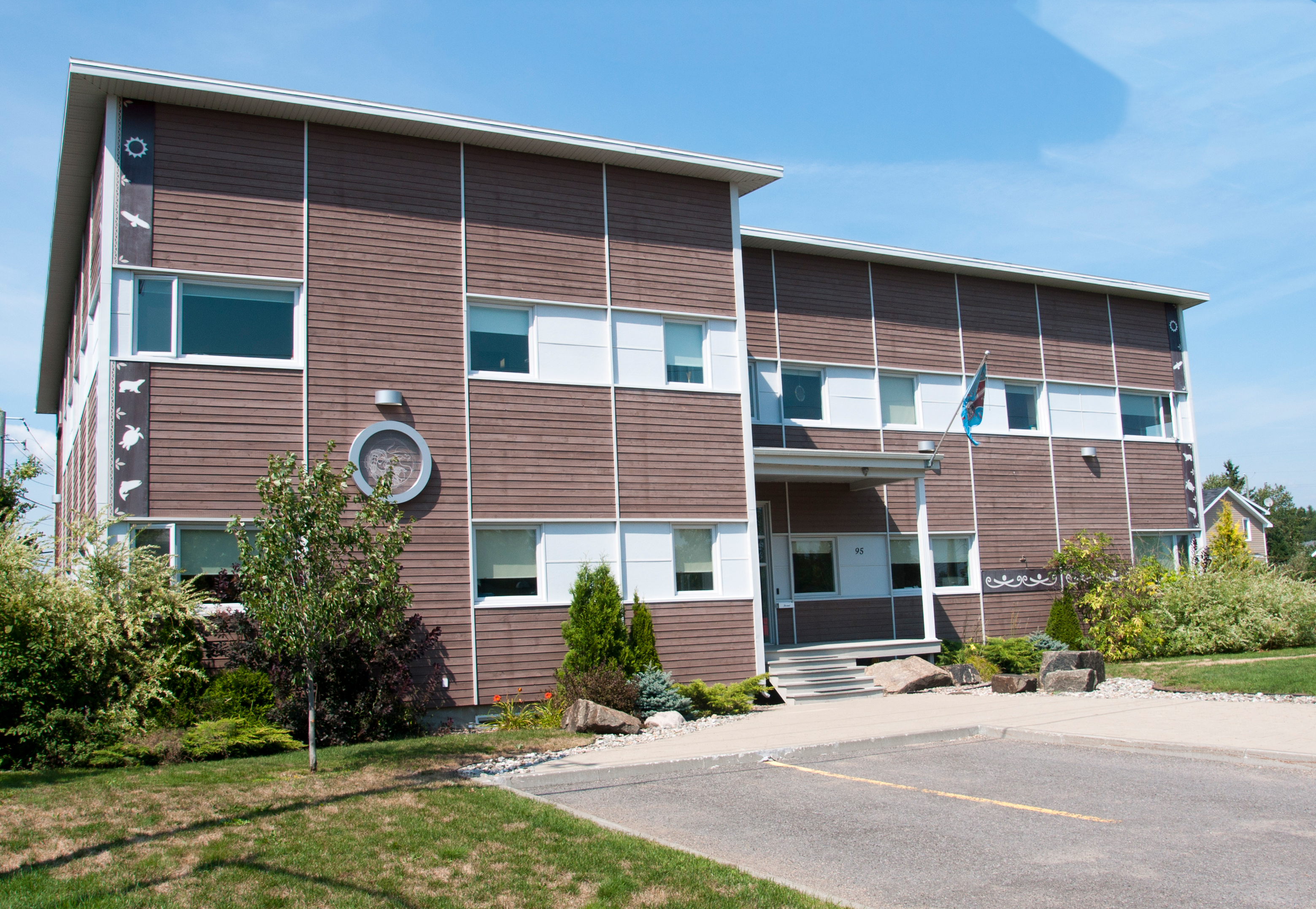

Designed by and for First Nations,
but open to all!
Kiuna’s objective is to democratize access to post-secondary studies for First Nations members. Kiuna is a recognized example of alternative and culturally adapted educational services. This college has earned a reputation for its culturally adapted education services through its unique environment where the programs, student services, human resources, teaching methods and material are based on Aboriginal culture and traditions.
Kiuna represents First Nations ownership of education without excluding Western knowledge. It is a place where First Nations cultures are reclaimed and revitalized and where students are exposed to First Nations perspectives and visions of the world, as well as the many cultural contributions First Nations have made to global society. Above all, Kiuna is a place where First Nations ways of life and know-how are celebrated.
Mission
The goal of Kiuna Institution is to shape competent First Nations citizens in their respective fields, proud inheritors of their culture, socially responsible, open to the world and concerned for the well-being of their communities. Its overall mission is to reinforce Aboriginal culture, identity and values. Raising awareness among non-Aboriginals to the realities of First Nations is also an important aspect of Kiuna’s engagement, and for this reason, Kiuna is open to any student who wants to learn more about First Nations and their unique cultures.Number of graduates since 2011

Kiuna's context of operation
Kiuna is supported by a number of partners among whom Dawson College and the CEGEP de l’Abitibi-Témiscamingue play an important role in managing pedagogical activities such as the certification of study programs within Quebec’s laws and standards in education. Each partner is working towards Kiuna becoming an independent post-secondary institution by 2022.
Designed by and for First Nations, Kiuna meets Quebec’s Ministry of Education standards and student competency requirements while being able to develop its own educational project.
Our programs also meet the needs expressed by First Nations communities for a qualified workforce. Kiuna works with First Nations communities and surrounding public sectors in truly every aspect of its operations.
The First Nations Education Council
Kiuna is managed by the First Nations Education Council. The FNEC which was founded in 1985, evaluates, administers, and implements education programs for 22 First Nations communities, representing eight nations in Quebec: Abenaki, Algonquin, Attikamek, Huron Wendat, Innu, Malecite, Mi’kmaq and Mohawk.
The FNEC unites the strengths and efforts of its members to defend their collective interests and find solutions to their shared problems in education. The organization plays a representative and supportive role, and its mandates, assigned by its members in general assembly, consist of promoting collaboration, encouraging communities to exercise their jurisdiction and take control of the educational services provided to their student populations, and assisting member communities with their claims before various authorities.
In addition to being present on the national scene, the FNEC is actively involved in a number of areas including program management, connectivity and information and communications technologies, preserving Aboriginal languages, and special education. The FNEC office is located in the community of Wendake, in the vicinity of Quebec City. For more information, visit www.cepn-fnec.com.


Kiuna’s focus: culture
For Kiuna, a college managed by Aboriginals, cultural safety involves cultural adaptations to the very essence of the school; for example, course content, teaching strategies and educational and psychosocial support services.
Educational services for Aboriginal students provided by non-Aboriginal schools typically demonstrate a limited interpretation of the notion of cultural safety in education. Very often no adaptations are made to curriculum or course content. Extracurricular activities are sometimes slightly modified, but often the modifications trivialize the activities and render them folkloric.
At Kiuna, each individual’s particular cultural context, situation and experience are carefully taken into consideration.
